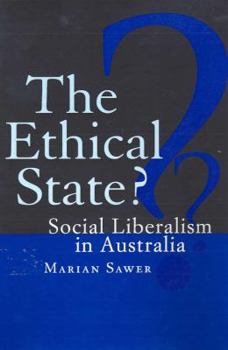The Ethical State?
Sawer's timely book offers an astute critique of the challenges facing social-liberal thought, and issues a rallying cry for its revival.
The ethical state-a state committed to the common good and equal opportunity-was a central tenet of the social-liberal theory that emerged in Britain in the late nineteenth century. Here, Marian Sawer explores how the new nation of Australia enthusiastically embraced the ideal. Translated as the 'fair go', and accepted by major policy makers on both the left and right of politics, social liberalism gave rise to the distinctively Australian institution of wage arbitration, and to other aspects of the welfare state such as public education, parks and pensions. For early Australian feminists it offered the alluring prospect of equality with men. A century later, the idea of the fair go may still resonate in political rhetoric, but liberalism has become a somewhat tarnished ideal. The dream of the ethical state lies in tatters, eroded by economic rationalism and user-pays ideology, and degraded by political machination. Has the social-liberal vision of the state as a vehicle for social justice completely run its course? Sawer argues no. Her timely book offers an astute critique of the challenges facing social-liberal thought, and issues a rallying cry for its revival.





